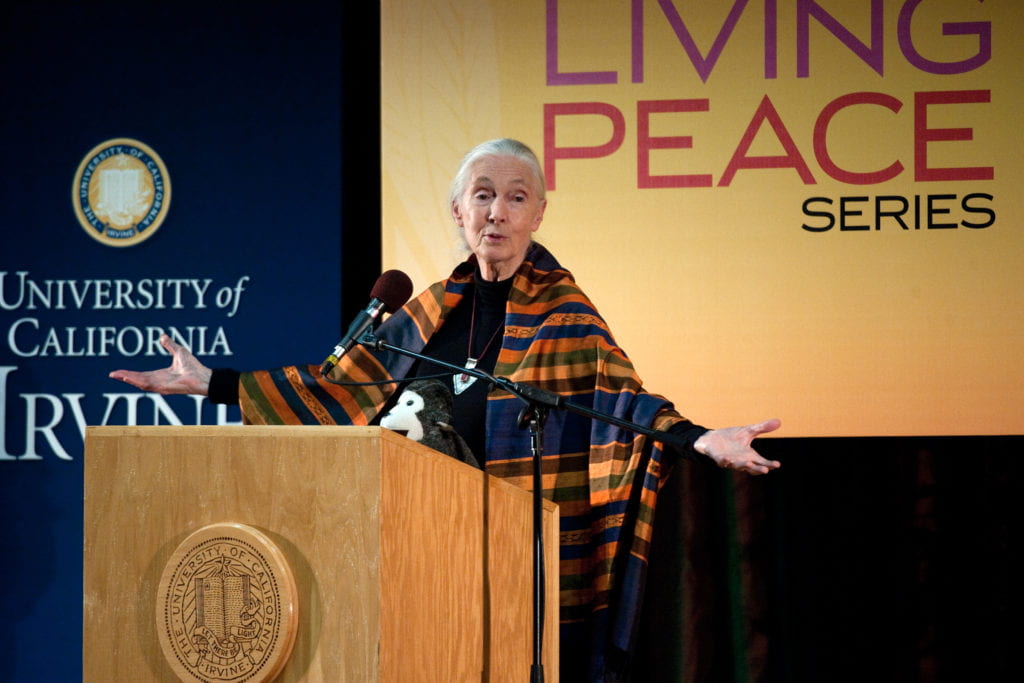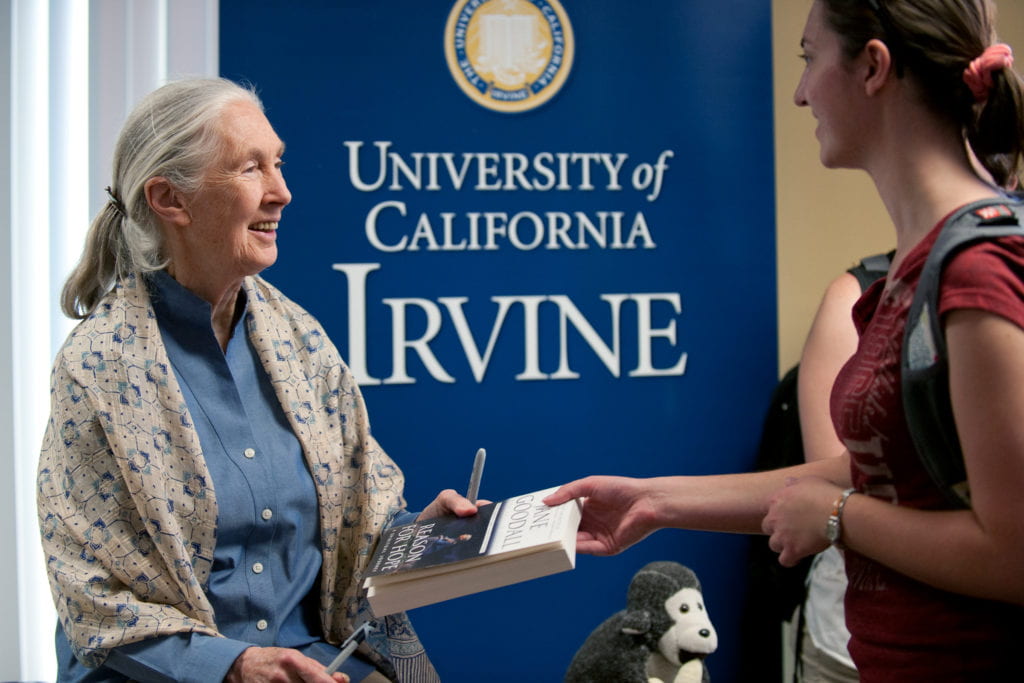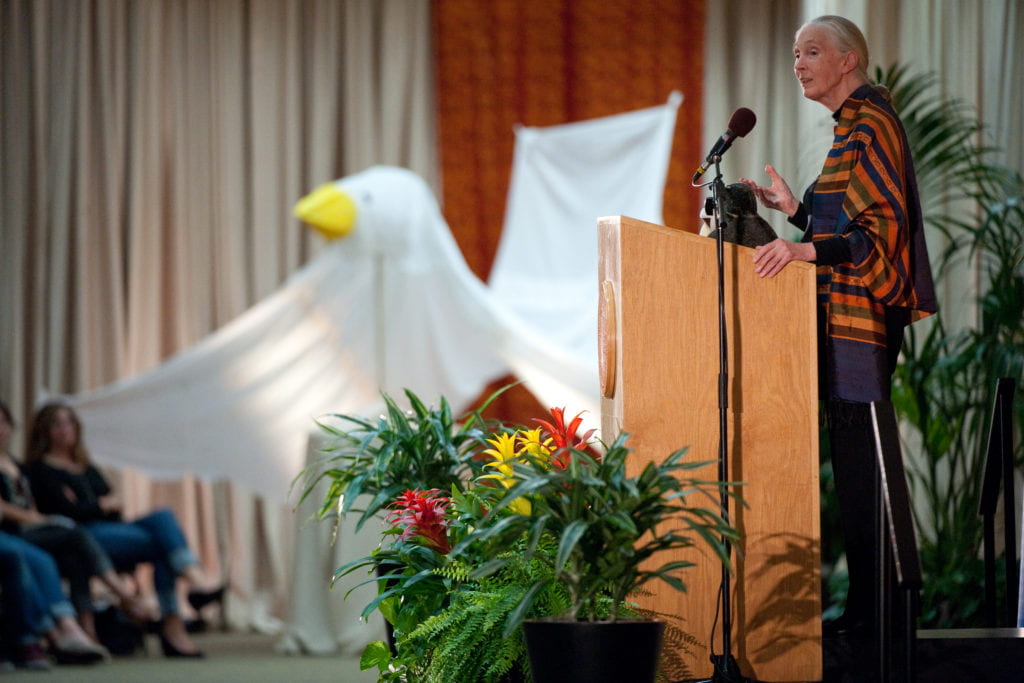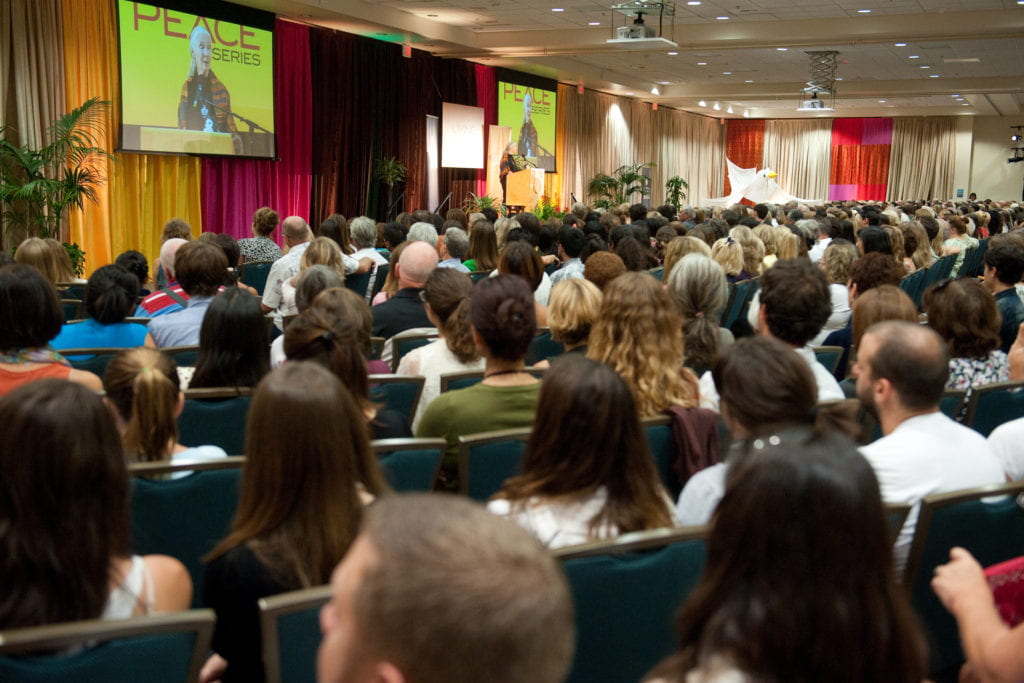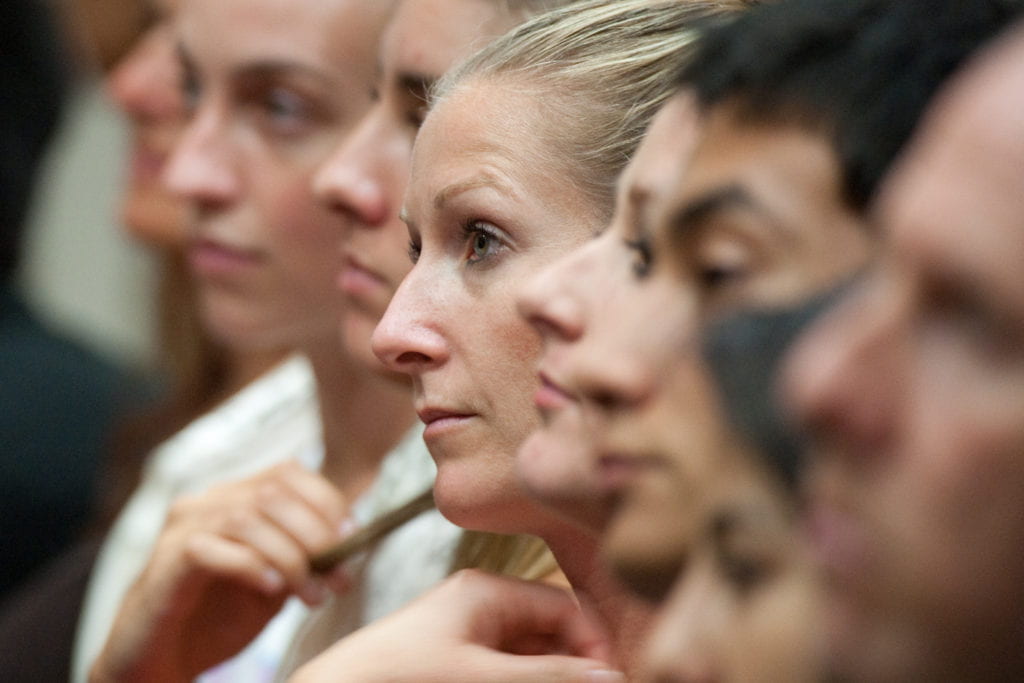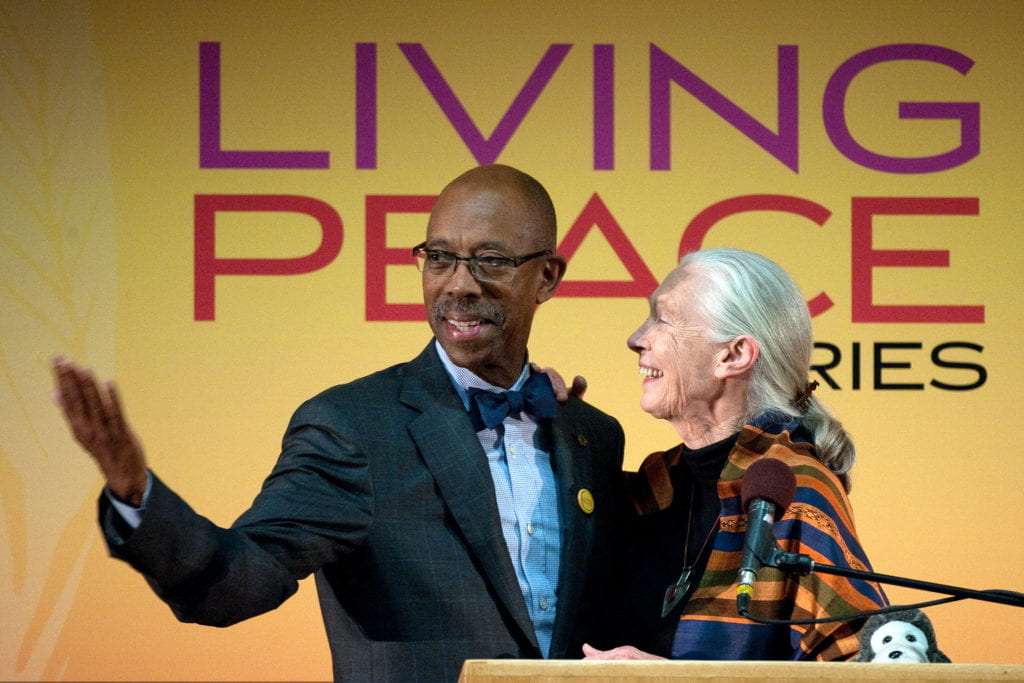Jane Goodall talks chimps, charity, choices
Renowned primatologist and environmental activist is sixth guest in Living Peace Series.
She is known worldwide for her groundbreaking research on chimpanzee behavior, has been made a Dame of the British Empire and is a U.N.-designated “messenger of peace,” yet Jane Goodall is not an intimidating physical presence.
A colorful shawl draped across her slender shoulders and her long, white hair in a ponytail, she spoke calmly but passionately Tuesday night in the UC Irvine Student Center’s Pacific Ballroom about her life’s work as a primatologist and environmental activist.
Born in England in 1934, Goodall decided as a child that she would someday “go to Africa, live with animals and write books about them” – a shocking ambition for women of that time. But through sheer determination, supportive parents and a fortuitous encounter with famed archeologist/paleontologist Louis Leakey, she did just that.
In 1960, while studying chimpanzees at Gombe Stream National Park – in what is now Tanzania – Goodall watched as a chimp picked up a twig, stripped off the leaves, pushed it down a termite hole, paused and then pulled it out – covered with the tasty insects. In that instant, she realized that chimps were capable of making tools, a feat that had been attributed to only humans.
“This was the first step in blurring the line dividing us from the animal kingdom,” Goodall told about 1,000 attendees Tuesday. “Chimps are more like us than any other living creature.”
Her appearance was the sixth in UCI’s Living Peace Series, which hosts international leaders committed to making the world a healthy, sustainable and compassionate place. Previous speakers have included the Dalai Lama, Richard Branson and Charlize Theron. The series is co-sponsored by the Center for Living Peace, Orange County.
In her address, Goodall noted how lucky she was to have had parents who encouraged her curiosity about animals. “I don’t suppose that we can choose which family we are born into,” she said. “I just hit the jackpot.”
She recounted how as a toddler she’d brought a handful of earthworms into her bedroom. Instead of being angry or horrified, her mother simply urged her to return the creatures to the soil outside, where they could live and thrive.
Goodall’s talk also covered genetic similarities between humans and chimps; their shared capacity for violence; her mentor, Leakey; the Roots & Shoots program she helped found to empower service-minded young people; and the habitat destruction that has reduced the wild-chimp population from 2 million in 1960 to about 300,000 today.
A dedicated environmental activist since 1986, Goodall emphasized that she remains optimistic about the future despite serious planetary challenges. “When people ask me how I can keep going … it’s the youth,” she said. “That’s one of my greatest reasons for hope.”
